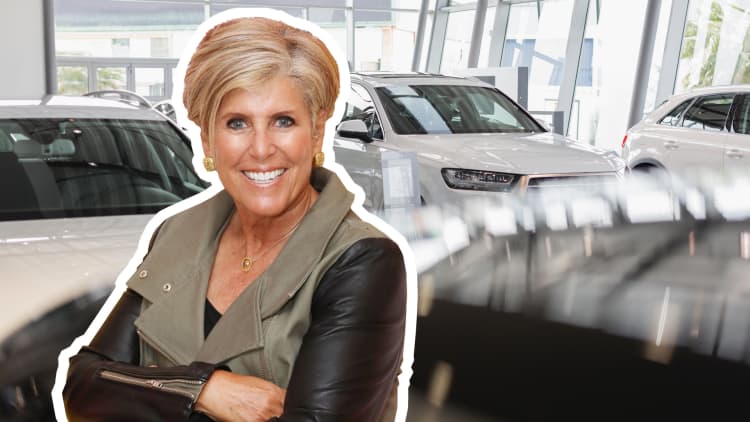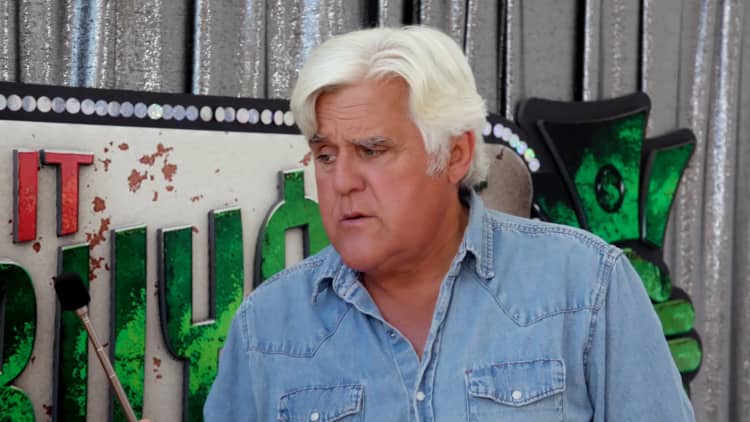Buying a car can be an intimidating process — and it doesn't help that dealers have a way of getting you to spend more than you need to.
To help you get the best price, CNBC Make It consulted two former car salesmen: Matt Jones, who is now the senior manager of insights at car-review site Edmunds, and David Weliver, who runs personal finance website Money Under 30.
To negotiate the best deal, follow these four steps.
1. Figure out exactly what you want to buy
Before walking into a dealership, you should know what type of car — and, ideally, the specific model — you want. Think about your priorities: Will you be carpooling? Do you have a long commute? Is fuel economy important? What are your must-have features? Is trunk space necessary?
You also want to determine how much you can afford and set a budget. Keep in mind that, almost always, a car will end up costing you more than the sticker price. You want to factor in all of the expenses that come with actually owning a vehicle, including gas, insurance, maintenance and repairs.

If you don't know what you want, "you're at the mercy of the [salesperson]," says Weliver. You give them room to play off your emotions and sell you something that's more profitable for them.
"You don't want to get in a situation where they can use your eagerness, excitement or urgency to get a car against you," he adds.
2. Research prices online
Once you've settled on a car that is within your budget and meets your needs, find out what other shoppers in your area are paying for the same model by using tools such as Kelley Blue Book or Edmunds' True Market Value pricing. "If you do pricing research, you can get a fair idea of where the market is and use that to power your negotiation," says Jones.
When negotiating, it helps to be able to justify what you're asking for, he adds: "Instead of saying, 'I want to pay this,' try something like: 'I've looked at five or six different cars that are similar to yours in the market. The price range goes from $19,500 to $20,700. I'm comfortable making an offer of $19,100.'"
The negotiation starts before you get to the dealership, Jones emphasizes: "It really comes down to doing your research, having the right information available and using that to make sure the dealer knows that you're an educated, informed consumer and that they can't pull any tricks."
3. Reach out to multiple dealerships
You want to get quotes from at least three dealerships, which you can do remotely, Jones says. Reach out to dealerships via email or over the phone and ask for the total selling price. Spend time researching the actual dealership, too. Read reviews online to make sure it's a reputable place to buy from.
Once you get at least one quote, you can take that and ask other dealerships if they can beat it.
It really comes down to doing your research, having the right information available and using that to make sure the dealer knows that you're an educated, informed consumer.Matt Jonesformer car salesman
After you've settled on a reputable place that offers a good quote, set up an appointment to test drive the car. If you like the car and want to buy it, then it's time to focus on getting a good price. In terms of how low to ask, it depends on the vehicle, Weliver says, but, "on an average car, if you want to come in a couple thousand dollars under the fair market price, that's a good starting place."
If you're not comfortable negotiating in person, you may be able to settle on a bottom line price before walking into the dealership, says Weliver. He suggests emailing several places that have the car you want and saying, "I'm interested in this car and want the best price. I've identified a similar car at these dealerships and have sent this email to everyone. Please get back to me with your best price and if you're the best, I'll be in on this date to take it."
The dealer will most likely ask you to come in and talk it over in person. "It's going to take some persistence to say, 'No, I'm going to buy this car but I need the bottom line price now or I'm not going to come in,'" Weliver says.
It's a technique "that the dealers hate," Weliver notes, "but it typically succeeds in getting you the best price." Plus, "negotiating over email will be much more relaxed, and once you go in, hopefully you're happy with the price and you just complete the transaction."
Finally, keep in mind that there's more to negotiate than the sticker price. If you can't get the dealer to agree on the number you want, "there are always extras they can throw in," Jones says, like free car washes or preventative maintenance for a certain period of time. Or, if you're trading in a car, you could ask for more money for your trade-in.
4. Don't play too hard to get
Acting like you don't like or want the car is not as effective of a strategy as it used to be, Jones says. Rather than walking away to try to get the dealer to chase after you with a lower price, "a better idea is to actually say: 'I like this. And if you make me a good deal, I'll tell all my friends that you gave me a good deal and you're a good place to buy from.'
"In today's world of social media and word of mouth, dealers want to sell to people who are happy."
Plus, entering a negotiation pounding your fists could backfire, Jones says. "If you're mean and tough and act like you don't care about the car that you're buying, a lot of dealerships will be like, 'If you don't want it, that's cool. Go buy something else then.'"
Don't miss: Former car salesman: The No. 1 mistake first-time car buyers make
Like this story? Subscribe to CNBC Make It on YouTube!



